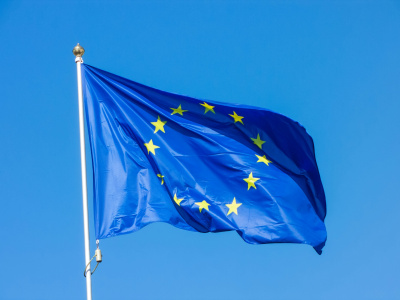
This year marks the 75th anniversary of the Schuman Declaration, a plan to create the European Coal and Steel Community, which launched the process of European integration. ‘Europe will not be built all at once or according to a single plan. It will be built through concrete achievements, first creating real solidarity,’ reads the declaration issued in 1950. Today, 9 May (the anniversary of this event) is celebrated by the Member States of the European Union as Europe Day. We asked Dr Arkadiusz Modrzejewski, prof. UG, Director of the Institute of Political Science at the Faculty of Social Sciences of the University of Gdańsk, for his comments on this holiday.
‘I am currently at the Fernando Passoa University in Porto, where we are implementing a project financed by the European Union on the protection of human rights in the age of AI (artificial intelligence),’ says dr Arkadiusz Modrzejewski, prof. UG. ‘The EU supports the development of international cooperation between Polish scientists and students, but also university administrators. This provides great opportunities for the exchange of ideas and good practices, as well as a chance to get to know each other. Thanks to this, we can feel part of an international academic community.’
According to prof. Arkadiusz Modrzejewski, such opportunities did not exist in the past:
‘I graduated 25 years ago. It was a completely different world, a different reality,’ he recalls. ‘The economic, infrastructural and social development at that time does not even need to be commented on. However, I would like to draw attention to one more aspect, which is also reflected in our project implemented by partners from Portugal and Spain. I am thinking here of security and the protection of fundamental human rights in the broadest sense, which is part of the activities of EU institutions and is, in fact, the DNA of the Union as a normative power," emphasises the Director of the Institute of Political Science. The events of recent years show that EU institutions, in particular the European Parliament and the European Court of Justice, defend fundamental European principles and values, such as the rule of law, even against the governments of Member States which, in pursuit of their own goals, resort to violating the principles of the rule of law. In a world of increasingly unpredictable changes, the European Union provides its Member States and citizens with a space for peaceful coexistence and development. It is a serious force in the global system.’
The European Coal and Steel Community, announced in a declaration by French Foreign Minister Robert Schuman on 9 May 1950, is considered the beginning of European integration. Over time, the ECSC evolved into the European Union we know today, and the anniversary of the Schuman Declaration became a celebration of peace and unity in Europe.
‘United in diversity’ has been the motto of the European Union since 2000, expressing the idea that Europeans should work together to ensure peace and prosperity and to protect the richness of cultures, traditions and languages in Europe. This joint action is particularly necessary today:
‘I wish for us and for politicians that we do not destroy this European integration project and that we do not waste the opportunity to strengthen it and prepare it for possible turbulence related to the upheaval of the international system,’ concludes prof. Arkadiusz Modrzejewski.
